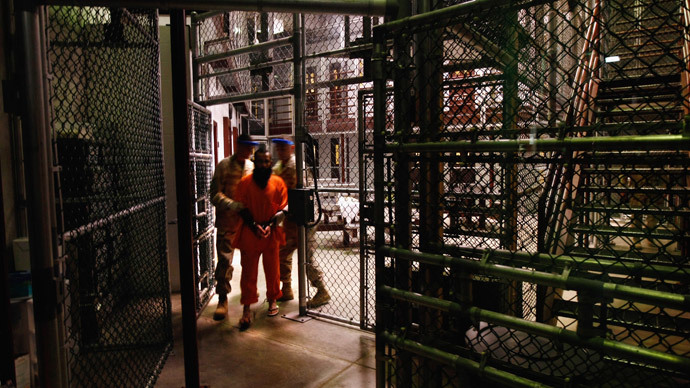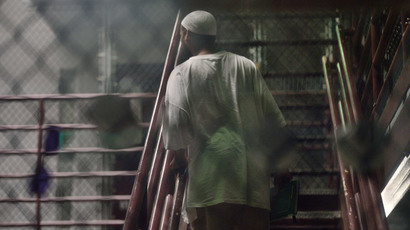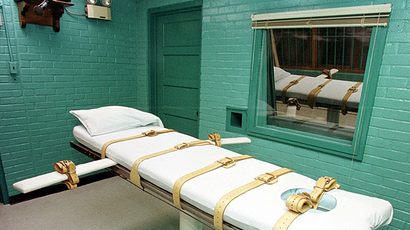Western glorification of torture making it ‘acceptable’ - Amnesty

More than one-third of people around the globe - increasingly fortified by a fear of terrorism and glamorized by American TV shows – see justification for the use of torture, Amnesty International said on Tuesday.
Since 1984, 155 countries have signed up to the UN Convention
against Torture. However, at least 79 of these countries still
engage in torture, according to human rights group.
And the actual number of countries that engage in torture
techniques is probably higher, since ‘enhanced interrogation
techniques’, as the US military euphemistically calls the
practice, generally occurs behind closed doors.
However, Western attitudes to the use of torture are changing with the times.
The Amnesty poll found that nearly 29 percent in the UK thought torture was "sometimes necessary" and "acceptable." That is a higher rate compared with Russia, for example, where 25 percent agreed with the practice.
This contrasts with the vast majority of people around the world, (82 percent) who think there should be clear laws against torture. However, more than one third (36 percent) still thought torture could be justified in certain circumstances, according to Amnesty’s poll (In China, 74 percent of the population is said to support torture).
The rise in support among Britons for torture, Amnesty believes,
is at least partly blamed on popular cultural trends that have a
tendency to show the dark practice in a glamorous light.
"Programs like ‘24’, ‘Homeland’ and ‘Spooks’ have glorified
torture to a generation - but there's a massive difference
between a dramatic depiction by screenwriters, and its real-life
use by government agents in torture chambers,” said Kate
Allen, director of Amnesty International UK.
‘24’, an American television series that premiered in November
2001, just as the ‘War on Terror’ was taking off, has been
criticized for its depictions of torture, as well as its negative
portrayals of Muslims.

Meanwhile, the critically acclaimed ‘Homeland’ – a version of a popular Israeli show - didn’t fare so highly with German critics. Der Spiegel said the program mostly depicts "hysterical CIA agents in a hysterical country," and provides a nice glimpse of the "paranoid tactics that delegitimize its democracy.”
“Torture is the negation of democracy, freedom and human
rights. If a democratic country allows itself to sink to the
level of torture, it must already be extremely hysterical and
anxious,” the publication said.
Allen said the temptation to fall to such depths to protect
freedom threatens the “moral pillars” of Western
society.
"We decided as a society, a long time ago, that torture is
simply wrong and can never be justified in any
circumstances,” Allen said. “That is one of the moral
pillars on which our culture is based.”
Summing up the results of the poll, Allen said it shows “we
have a lot of work to do.”
The subject of torture suddenly entered America's living rooms in
the summer of 2003 as the 'war on terror' was really heating up.
Amnesty reported the horrific details of torture in US-run Iraqi
prisons, most notably in Abu Ghraib where reports, backed up by
shocking photographs, showed Iraqi detainees being exposed to various forms of physical and
mental torture.
Unlike a disease that may be eradicated with the right diagnosis
and medication, stopping the scourge of torture requires a
fundamental change in the mentality of people, many of whom see
the use of the age-old technique as ‘routine’.
"It's almost become normalized, it's become routine,"
Amnesty secretary general Salil Shetty told a press conference at
the start of the ‘Stop Torture’ campaign in London.
"Since the so-called War against Terrorism, the use of
torture, particularly in the United States and their sphere of
influence... has got so much more normalized as part of national
security expectations."
The Amnesty poll of 21,000 people in 21 countries revealed a
widespread dread of torture, with 44 percent saying they feared
being exposed to physical abuse if they were taken into custody.
The human rights watchdog has called for more international
efforts to prevent torture, which is “flourishing”
amidst a sea of hypocrisy.
"Governments around the world are two-faced on torture -
prohibiting it in law, but facilitating it in practice,”
Shetty said.














